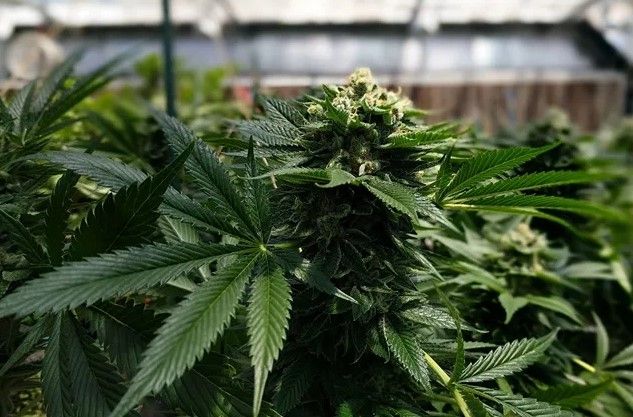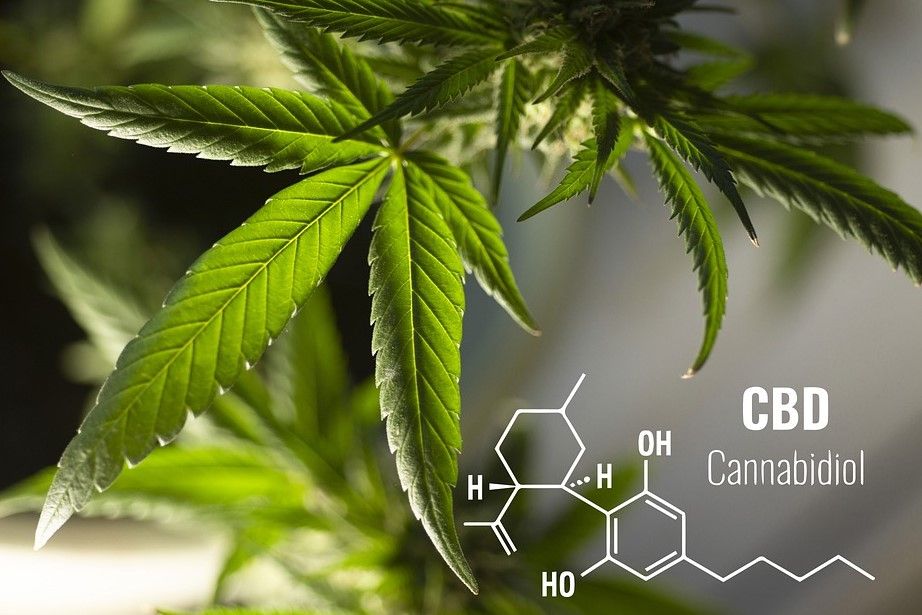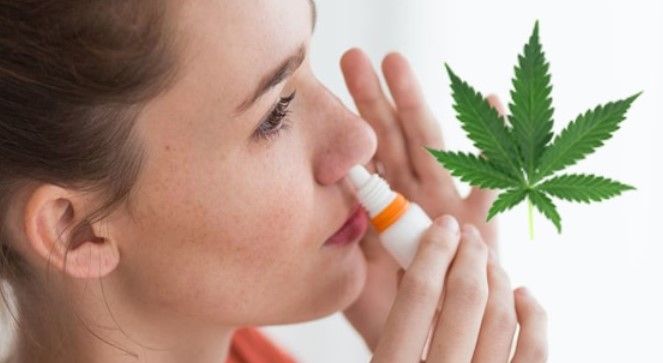Recreational cannabis users generally haven’t consumed the drug intranasally. However, with recently developed cannabis nasal sprays, this activity has become more common. Cannabis nasal sprays are designed to deliver molecules into the nose for quick onset of effects. Are these products effective?
Cannabis nasal spray is a new way to consume cannabinoids, but will it be as effective as other methods? Many cannabis users prefer to smoke or vape the herb, which sends cannabinoids directly into the alveoli of the lungs and then into the bloodstream. Others choose to make edibles, which subjects THC to first-pass metabolism in the liver and results in stronger and longer-lasting effects. These two methods are ancient but they continue to work well.
Newer products, such as THC strips and sublingual oils, are also available and becoming more popular. Nasal sprays take things to another level by administering the product directly into the airways of the nose. Much like an array of medications currently on the market, these products are designed to produce a desired effet. But how exactly do they work? And what benefits do they offer? Find out everything you need to know about cannabis nasal spray below.
What Are Cannabis Nasal Sprays?
Nasal spray products are effective because they deliver medication directly to the site of the problem. Rather than swallowing a pill and waiting for it to take effect, nasal sprays work immediately.
Cannabis nasal sprays are designed to target the nostrils and sinuses directly, as opposed to the lungs or digestive tract. Because of this, cannabis and CDB nasal sprays are becoming more popular in dispensaries and prescription cannabis clinics. These types of products also tend to have a fast onset of effects, which makes them appealing to recreational users who like to experiment with new things.
How Do Cannabis Nasal Sprays Work?
Cannabis nasal sprays work similarly to decongestant nasal sprays. Each bottle has a nozzle that releases a fine mist into the nostrils. Whether anasal spray contains THC or CBD,the active compound interacts with epithelial cells in thenasal cavity viathe endocannabinoid system (ECS). The signalling system, made up of different molecules (endocannabinoids), receptors, and enzymes act as a kind of checks-and-balance for the body by regulating various systems. This helps to keep everything in equilibrium or what we call homeostasis.
The ECS plays an important role in the body’s immunity, inflammation, and allergies—three factors that contribute to problems within the nasal cavity and sinuses. Studies are ongoing to explore how cannabinoids such as THC and CBD influence ECS receptors and enzymes, which could potentially impact infections, inflammation, and autoimmunity (an overactive immune response). Though cannabis nasal sprays are applied locally to the nose and sinuses, they actually could potentially affect various other physiological processes.
What Are the Benefits of Cannabis Nasal Sprays?
Until more extensive research is conducted, the potential benefits of weed nasal spray remain largely unknown. Although viruses are a common cause of upper respiratory infections, both bacteria and fungi can also contribute to these conditions. Some researchers hope that by exploring the antimicrobial effects of certain cannabinoids, they may be able to find natural agents that could help fight these types of infection.
In addition, sinusitis commonly occurs after infection or allergic reaction. Inflammation is part of the immune response in cases of infection. However, when chronic infections or allergic reactions are present, this response can become problematic. Scientists are currently investigating if cannabinoids like CBD have any influence on chronic inflammation as a potential form of treatment for sinusitis.

CBD and Nasal Polyps
Although benign (non-cancerous) and generally painless, if left untreated, nasal polyps can become a serious issue. Formed from the mucous membrane – a type of tissue that lines the nasal cavity and helps to filter the air we breathe – these growths typically result in similar symptoms to those experienced during a cold; however, instead of dissipating within a few days as is common with a cold, they linger until treated. Symptoms caused by nasal polyps include:
- Blocked nose
- Runny nose
- Post-nasal drip
- Snoring
- Nosebleeds
- Reduces sense of taste and smell
- Irritation and swelling
Left untreated, nasal polyps can grow large enough to block the nasal and sinus passages. This not only makes breathing difficult, but also increases the risk of infection. So, could CBD nasal spray help to ease the symptoms of nasal polyps? There is not yet enough evidence to confirm this, but there are studies underway that are investigating potential effects relevant to conditions like inflammation and bacterial infection.

THC vs CBD Nasal Sprays
Although THC and CBD nasal sprays create different effects, as the two cannabinoids affect the ECS differently. To begin with THC, it is the primary psychoactive constituent of cannabis that binds to CB1 receptor of the ECS. By doing so, there is a change in dopamine signalling which leads to the characteristic cannabis haut. In addition, though ,the cannabinoid also binds to CB2 receptors mainly located in immune system. THC doesn’t just bind to one site; it actually binds to multiple sites that work together as the expanded ECS, which is more commonly known as the endocannabinoidome. In addition to causing a psychoactive experience, studies are also investigating THC’s possible anti-inflammatory and pain-killing properties.
In contrast to THC, CBD has a less direct interactions with the ECS. Studies suggests that instead of binding to CB1 and CB2 receptors, it causes an increase in levels of endocannabinoids by blocking enzymes that break them down. Additionally, CBD attaches to TRPV1––the capsaicin receptor linked with pain signalling.
Do THC Nasal Sprays Get You High?
The effects of the THC will depend on how potent the formula is. When sprayed into the nasal cavity, it has instant access to your bloodstream due to the capillaries in your walls. Therefore, you would experience quick onset and duration of effects. A formula containing both CBD and THC can reduce psychoactive effects; however, anylarge amount of THC will still result in a high feeling.
Can Cannabis Nasal Sprays Be Dangerous?
When used incorrectly, cannabis nasal sprays can be dangerous. Overusing any type of nasal spray will damage the delicate tissues in your nose. Additionally, both THC and CBD may cause negative reactions in some people and interact with other medications negatively. People with mental health issues should avoid THC, while CBD’s users are advised to consult their medical professional as it changes the way the liver processes many pharmaceutical drugs.
The Future of Cannabis Nasal Sprays
Although it may sound strange, cannabis nasal spray products could be an efficient way to use cannabinoids. In addition, since you avoid inhaling or swallowing cannabinoids, there is a lower chance of potential risks that come with smoking and vaping–such as the long onset and sometimes overwhelming effects associated with edibles. Although further human trials are necessary to discover the potential of weed nasal spray in a clinical setting, it is probable that we will continue seeing pharmaceutical-grade equipment and methods used in the disbursement of cannabinoids.

